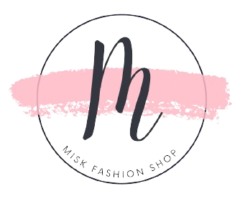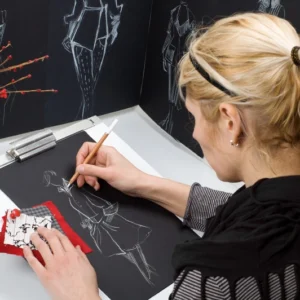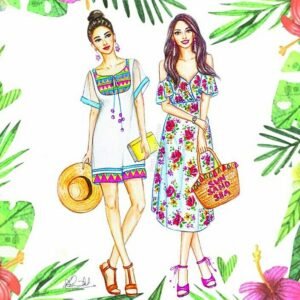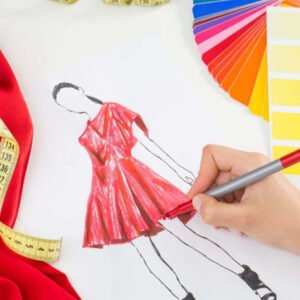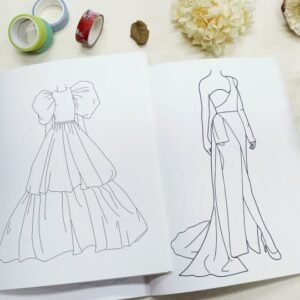Description
This course includes:
language :ِAR
30 mint on-demand video
1 downloadable resources
Access on mobile and TV
Full lifetime access
- Research and Inspiration: Gather inspiration from fashion trends, historical costumes, or personal creativity. Research helps inform your design direction.
- Silhouette and Proportions: Sketch the basic silhouette of your design using geometric shapes or a mannequin template. Ensure proportions are accurate and reflect your intended style.
- Details and Embellishments: Add details such as seams, buttons, zippers, and any embellishments that define your design. Pay attention to fabric textures and how they interact with the silhouette.
- Pose and Movement: Draw the figure in a pose that complements your design. Capture movement and dynamics, ensuring the pose showcases the garment effectively.
- Color and Rendering: Choose a color palette that enhances your design concept. Apply colors using appropriate techniques such as watercolor, markers, or digital rendering.
- Shading and Highlights: Add shading to create depth and dimension. Highlight areas where light would naturally hit the fabric or the body, enhancing realism.
- Background and Context: Consider adding a background or context that complements your design. This could include a runway setting, urban landscape, or any thematic element that enhances the narrative of your illustration.
- Refinement and Final Touches: Review your illustration for accuracy and coherence. Make any necessary adjustments to ensure the overall composition is polished and visually appealing.
- Presentation: Present your fashion illustration professionally. This could include digitally enhancing the illustration, creating a portfolio, or showcasing it in a manner that highlights your design skills and creativity.
By following these steps, fashion illustrators can create compelling and expressive illustrations that effectively communicate their design concepts and ideas.


